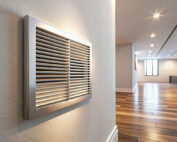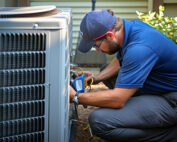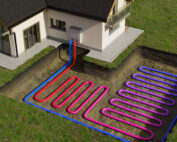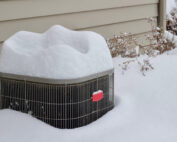When your air conditioning system starts acting up, you might ask yourself, “Can you replace just the outside AC unit?” This question is common for homeowners looking to save money on repairs or upgrades. While the simple answer is “yes,” HVAC professionals often advise against it. Replacing only the outdoor unit can lead to compatibility issues, reduced efficiency, and increased repair costs over time. Here’s why this decision requires careful consideration.
Understanding How Your AC System Works
An air conditioning system relies on two primary components: the indoor evaporator unit and the outdoor condenser unit. These parts are designed to work together as a cohesive system. If one component is replaced without the other, the overall performance can suffer.
For example, a new, high-efficiency outdoor unit may not function optimally with an older indoor unit. This mismatch could result in poor cooling, higher energy bills, and unnecessary wear and tear on the system.
Compatibility Concerns: Matching Indoor and Outdoor Units
One of the biggest challenges when replacing just the outside AC unit is compatibility. Manufacturers design indoor and outdoor units to function as a matched pair. When one is replaced, the other may not meet the new unit’s specifications. This can cause the system to work harder, reducing its lifespan and efficiency.
Additionally, newer outdoor units often use advanced technology that may not be compatible with older systems. This technological mismatch can lead to issues such as improper refrigerant flow or uneven cooling.
Refrigerant Considerations: R-22 vs. R-410A
Another key factor is the type of refrigerant used in your system. Older air conditioning systems typically use R-22 refrigerant, which is being phased out due to environmental concerns. Most modern units use R-410A, a more eco-friendly option. Mixing components that use different refrigerants is not recommended and can cause the system to malfunction.
If your current indoor unit requires R-22, but the new outdoor unit uses R-410A, you may face significant compatibility issues. In such cases, replacing both units simultaneously ensures proper operation and compliance with environmental standards.
The Cost Factor: Short-Term Savings vs. Long-Term Expenses
At first glance, replacing only the outside AC unit might seem like a cost-effective solution. However, this approach can lead to higher costs over time. An incompatible system is more likely to require frequent repairs, consume more energy, and wear out faster.
On the other hand, investing in a complete system replacement may have a higher upfront cost but offers long-term benefits. A matched system operates more efficiently, saving you money on energy bills and reducing the need for future repairs.
Energy Efficiency and Comfort
Modern air conditioning systems are designed with energy efficiency in mind. Replacing both the indoor and outdoor units ensures that your system can take full advantage of these advancements. A mismatched system might not provide the same level of efficiency, resulting in uneven cooling and higher utility costs.
Replacing the entire system also helps maintain a comfortable indoor environment. A properly matched system cools your home more effectively and evenly, ensuring that every room stays at the desired temperature.
Warranty Implications: Protecting Your Investment
Replacing just the outdoor unit can void manufacturer warranties. Warranties are typically designed to cover systems where all components are matched and installed together. By replacing only one part, you risk losing this protection.
A new warranty often comes with a complete system replacement, providing peace of mind and safeguarding your investment.
Professional Recommendations for AC Replacement
When considering air conditioning repairs or upgrades, always consult an HVAC professional. They can assess your system, provide tailored recommendations, and ensure your home remains comfortable and efficient.
In many cases, professionals will recommend replacing both the indoor and outdoor units simultaneously. This approach guarantees compatibility, maximizes energy efficiency, and extends the system’s lifespan.
When Replacement Isn’t Necessary
In some cases, the issue may not require replacing the outdoor unit at all. Routine maintenance, such as cleaning the condenser coils or replacing worn parts, can resolve many performance issues. Regular maintenance checks by a qualified HVAC technician can also help identify problems early and prolong your system’s life.
Why Work with Will Air, LLC
So, can you replace just the outside AC unit? Technically, yes—but it’s rarely the best option. Compatibility issues, refrigerant concerns, and efficiency losses can outweigh the initial cost savings. A complete system replacement ensures that your air conditioning system operates at peak performance, saving you money in the long run and providing consistent comfort.
If you’re considering replacing your AC system, contact Will Air LLC for expert advice and quality HVAC services in Maryland. With decades of experience and a commitment to customer satisfaction, we’ll help you find the best solution for your home. Remember, where there’s a Will, there’s a Way!
Hot Topics
Recent Posts
What Is Duct Cleaning and Why Do You Need It?
When was the last time you had your air ducts cleaned? If you can’t remember—or [...]
Top Maintenance Tips to Save Energy This Winter
As temperatures drop, homeowners and businesses rely heavily on their heating systems to stay comfortable. [...]
How Do Geothermal HVAC Systems Work?
Geothermal HVAC systems are gaining popularity as a sustainable alternative to traditional heating and cooling [...]
Maintain HVAC Efficiency During Extreme Weather
Extreme weather can challenge your HVAC system, pushing it to work harder than usual. Knowing [...]







